- Home
- Peter Lerangis
The Chaos Loop Page 3
The Chaos Loop Read online
Page 3
“Guys, I’m a Throwback,” Corey said. “I can change things. Maybe there’s something I can do to turn you back into humans!”
“That is a tempting proposition,” Smig remarked.
“Honey, so little is known about twansspeciation,” Catsquatch said. “It’s just too wisky.”
“How much is known?” Corey pressed. “How many times does it take? And what happens if I only go back to long, long ago—like, before I was born? That way I wouldn’t be in two places at the same time. My DNA won’t have anything to complain about. Does that protect me from transspeciation? Or is it just about the frequency?”
“He asks a lot of questions,” Smig grunted.
“I’ll stawt with question one,” Catsquatch said. “It only took twelve times for me to twansspeciate.”
“Oh?” Smig said. “It was two hundred forty-three for me . . . or maybe two hundred forty-four.”
“Whaaat?” Corey said.
“Perhaps I was an outlier,” the warthog snuffled. “I know a fellow who transspeciated after only three hops. He turned into a mosquito. Someone smacked him. What a waste.”
“My deew fwiend, Pottsy Liscomb? She wacked up over a thousand hops and nothing happened,” Catsquatch added. “But she was a mawathon wunner, vewy young and physically fit. She wetired fwom time-hopping at age twenty-nine, fully human. She has a vewy nice goblet from Ancient Wome. Also Awistotle’s autogwaph.”
“That’s crazy!” Corey said. “That’s not helpful at all! How am I supposed to know how many hops I can do?”
“You’re a Throwback,” Smig said. “Maybe you’re immune. Maybe you can keep it going forever.”
“I will not let him take that chance!” Papou shouted.
“Let’s be calm and think this thwough, Gus,” Catsquatch said. “Maybe we can weach a compwomise. He’s young and stwong, like Pottsy. I think he just needs to keep twack of the wawning symptoms when he weturns into the pwesent from the past. A tingle in the body. A feeling of disconnection. A splitting headache.”
“I get those already!” Corey said.
The park fell silent. Papou was giving Corey a dark, meaningful look.
“Well, they’re not killer,” Corey added. “But I feel them.”
“Do you find yourself slipping in time, like, not coming back when you expect to?” Smig asked.
“That happens to us all,” Catsquatch said. “Is haiw stawting to gwow on your cheeks and hands?”
“Do you have a sudden inexplicable urge to eat slugs?” Smig followed up.
“No, no, and heck no!” Corey shot back.
“Okay, some good signs,” Catsquatch said.
Smig snorted. “I do not see this ending well. My boy, if I were a Throwback, I know what would happen. I’d be tempted never to stop. I’d go big. Prevent wars from happening. Encourage action against climate change. Prevent assassinations—”
“And how, pway tell, would you do this?” Catsquatch asked.
“I wouldn’t,” Smig replied. “And that’s my point. Things would go wrong. I’d fail. I’d cause unexpected bad things to happen. I’d want to do it over again. Once you start, it is so hard to stop. You get caught in what the ancients call a chaos loop. A cycle of failure and escalating frustration. It sucks you in and you will never let go until . . . Well, my advice is, stop now while you can walk upright and smell fresh and sweet.”
Papou smiled triumphantly. “You see?”
“Even a few times?” Corey asked. “What if I keep it up just until I feel symptoms?”
“If you must,” Catsquatch said, “then my advice is, go big and go limited. Make a list of goals. And be vewy, vewy choosy.”
“That,” Papou said, his face sinking, “is not exactly the advice I wanted to hear.”
He promised Papou he wouldn’t do it.
He agreed at least five times that it was too risky.
But now, at 1:07 a.m., Corey’s fingers flew across the keyboard as if someone had held a match to them. He kept a history textbook open before him, and a bunch of Wikipedia pages on his screen.
Make a list. Go big. Change the world. It was so simple.
Limit himself. Keep it to a fixed number of time hops, and then—slam. No more. Door shut.
He could do it. At the first sign of transspeciation—one hair growing in the wrong place—he’d stop. He wasn’t that dumb.
After a gazillion revisions, he sat back and looked at his work:
MY DREAM LIST
By Corey Fletcher
Possible Things to Prevent / Help / Change in History
THINK BIG!!!! HOLD NOTHING BACK!!!
Take AIDS drug info to drs late 1970s/early 80s
Expose 9/11 terrorists before attack 2001
Invest $1,000 in Microsoft, Apple, Amazon 1986, 1980, 1997
Stop Civil War 1860s
Stop World War I 1914
Stop World War II 1939
Stop Vietnam War 1960s
Buy cheap NYC brownstones (ask Papou for $$) 1900s?
Make peace Anglo settlers + Native Americans 1600s (?)
Stop Lincoln killer 1865
Warn Titanic 1912
Stow away on moon landing 1969
Expose climate change / bring green tech info 1900?
Tip off police to JFK killer 1963
Get Mets World Series tix, final game 1969, 1986
Stop cow from kicking lantern before Chicago fire 1871
Warn SF about earthquake 1906
Corey’s eyes were bleary. He yawned, then shut his laptop. The list was overwhelming. And these were just some of the top ones in the history of the US. He would get to the other continents tomorrow.
Then he would have to narrow it down.
How many chances before he felt the symptoms? Before things went beyond headaches? He’d have to prioritize. The most important things first.
Chaos loop. A cycle of failure and escalating frustration.
It sounded horrible. But it wouldn’t happen to Corey Fletcher. It couldn’t. He was a Throwback.
The last thing he did before falling asleep was to touch his cheek. It was smooth, hairless, and human. And the thought of slugs did not make him hungry. Not one bit.
5
Bonnnng . . . bonnnng . . .
Corey jumped out of bed, not knowing how he’d ended up there.
He recognized the chimes of the old clock on the living room mantel. But the last time he’d heard them was years ago. The chimes had been disabled.
Rubbing his eyes, he saw that his laptop was still open. He tried to waken the dark screen but nothing happened. It was completely shut down. After rebooting he discovered that his list—the complicated, long list—was gone.
He groaned. For a moment he suspected he’d time-hopped. But nothing had changed. One thing about time travel, you knew when it happened. You felt it.
There must have been a power outage. He would have to start over.
Bonnnng . . . bonnnng . . .
Four chimes. Four a.m. He staggered into the living room, yawning, and stared curiously at the old clock. It had been silent since he was a little boy. Back then, the chimes had spooked him, waking him every hour. He’d begged his mom to throw it out but instead she had somehow “fixed” it, silenced the chimes.
They weren’t silent anymore.
Corey carefully swept aside some photos so he could examine the clock. On its base was an inscription: Luis Velez / New York Telephone Company Pioneer / 35 Years of Loyal Service.
He smiled. He only vaguely remembered his other grandfather, his mom’s dad. Papi Luis had died when Corey was four.
Carefully Corey swiveled the clock around. On the back was a panel with a small hook. He turned it and pulled, and the panel swung open to reveal brass gears attached to three tiny hammers. The hammers were precisely poised over metal chimes, but now Corey could see that Mom had stuffed a wad of cotton between them, jamming and silencing the hammers.
By now the cotton had d
isintegrated into dirty white flecks. The hammers, for the first time in years, were striking the chimes again.
“Sorry, sweetie,” came his mom’s voice from the living room entryway. With a grin, she held up a piece of fresh cotton.
“Awesome. All this time I never knew how you did that.”
“Well, I figured my little hack wouldn’t work forever.” Mom quickly stuffed the new cotton into place. “You know, your abuelo was so proud of this clock. Truth be told, I think it’s ugly. Mutti would tease him about it. ‘Thirty-five years you give the company, and all you get is a lousy clock? How about a little house in Puerto Rico?’ She was a character. So funny and full of life. They really adored each other.”
As she shut the panel, Corey took her parents’ framed wedding photo down from the mantel. In it, Corey’s grandfather was laughing so hard his eyes were closed. He was dressed in his crisp World War II United States Army uniform, his dark eyebrows lifted way up, his teeth gleaming. Next to him, Corey’s grandma was staring at the camera with mischievous, dancing eyes, her lips puckered as if to keep a straight face. “Look at them,” his mom said. “They never could take a serious picture.”
Corey thought about his grandmother all shriveled and haunted looking in her wheelchair. “It’s hard to imagine her like that now.”
“She had a tough life. I think the joking covered up the pain. You’ve seen this one, right?” Mom put the wedding picture in its place and held up an even older photo. It was a family, looking very formal and posed—a bespectacled, balding man with a beard and waxed mustache; a hefty-looking, white-haired woman with a feathered hat; three scowling boys in shorts; and a thin, dark-haired, smiling little girl.
“Mutti’s family?” Corey said. “She’s the girl, right? In Poland?”
“Helga Meyer, before she became Helga Velez.” His mom nodded. “She lost all of her family in Warsaw, when they were taken by the Nazis. She hid with a kind family, but they were poor and could not feed her well. Thin and weak, she was smuggled away by the Resistance, to a border town in Austria. From there they managed to smuggle her out of Europe entirely, to South America. That same day the Nazis ambushed the village, killing everyone. Blessedly Mutti was on her way to Brazil and then eventually to Puerto Rico. That’s where she met Papi, where he was stationed in San Juan. It was love at first sight.”
“Wow . . . she never talked about any of that,” Corey said. “Except the part about meeting Papi.”
“That part was happy,” Mom said. “The rest was painful. She would talk about it to us once in a while, but she didn’t want us to say anything. ‘Let bygones be bygones,’ she told us.”
“What happened to them?” Corey asked. “Her family?”
With a heavy sigh, his mom placed the photo back on the mantel. “I don’t know. I don’t know if anyone does. There was one thing. . . .”
She disappeared for a moment, returning with a small, weathered cardboard box. Inside, on a small cotton bed, was a small, rectangular metal box. “A cigarette case,” Mom said. “Look inside.”
Corey unclasped the box and took out a battered identification card. It was brittle to the touch as Corey held it close to read.
“Stanislaw Meyer,” Mom said. “Mutti’s brother. Your great-uncle. They found this on his body in the woods, near the end of the war.”
“The Nazis shot him?” Corey asked.
“Ironically, no,” Mom replied. “In nineteen forty-five Stanislaw was part of a group being marched through the forest, to be taken to a labor camp. But the Nazi commander grew weary of the snow and cold. And so, when the prisoners stopped to rest, he and his men shot them all. Except for Stanislaw. He had had a sense something was wrong. And so he excused himself to pee. He went behind an abandoned hunting shack and hid. When he heard the shots, he stayed there. They had forgotten about him. They didn’t care. They knew it was a shorter walk to go back to Nazi headquarters than to reach the camp. So Uncle Stanislaw waited until the Nazis were gone. And then he ran.”
Mom gently took the ID card and placed it back in the box. Her eyes were watering.
“So . . . how did he die?” Corey asked.
“Somehow he made it through the forest,” Mom continued. “He saw the lights of some town or city. But just before he made his way through to civilization, he found the body of an armed Nazi soldier hidden in the bushes. To be safe, he took the man’s pistol. Moments later he saw a convoy of Nazi vehicles approaching on the road. He could see they saw him. So in panic, he shot at them. They . . . they shot back. . . .”
“The Nazis killed him?” Corey said. “After all that?”
“It wasn’t even Nazis. The convoy was captured vehicles, Corey. Resistance fighters were driving them. Stanislaw was killed . . . by the people who would have rescued him. Because of a hurried mistake. His story would have been lost had he not managed to tell them who he was before he died.”
“What a waste,” Corey said. He took the box and held it. “Can I keep this?”
“But this is such a ghoulish, sad thing, Corey.” Mom cupped her hand around the back of his neck. “I’ve put such sad thoughts in your head, you’ll never sleep.”
“I’ll be okay, I’m just proud of how brave he was,” Corey said. “Night, Mom. Thanks.”
As he got to his room, he looked at his laptop’s screen. He thought about his lost list of potential historical events to change.
Maybe he didn’t have to reconstruct it now.
He couldn’t stop thinking about his great-uncle and great-grandparents. He tried to memorize their features. He sat down and started to research them as best he could. He searched on their names. He looked for their faces in images of families being marched out of their homes at gunpoint. He looked for them in photos of death camp prisoners. But he came up empty-handed everywhere. It was as if they never existed.
He plunged deeper and read about the millions of Jews slaughtered for no reason, completely erased from the record of humanity. He read about the Poles and gay people and anyone the Nazis decided were expendable. He dug into reports of “experiments” by Nazi doctors, who injected diseases into people and forced them to die in slow agony. He saw the photos of mass graves and starved, zombielike prisoners.
As the sun’s rays began to blush the morning air, Corey was watching a film called Triumph of the Will. Much of it was archival footage of Adolf Hitler addressing a crowd that seemed to stretch to the horizon. But the dictator’s voice was tinny, nasal, and squeaky. He pounded his fists like a toddler and jerked his head as he barked, which sent greasy hair flying across his forehead. It made Corey laugh. He couldn’t help thinking that the people in the crowd must have been laughing, too. But when the camera cut to them, they didn’t look snarky or embarrassed. Their faces were adoring, smiling, enthusiastic. Some cried with joy.
It was a sea of love for a man who promised a “pure” society, a future cleansed of anyone he didn’t like.
For example, Mutti’s family.
Corey’s family.
He shut the laptop, feeling sick. Hitler had followed through. Those adoring faces had allowed the murders. Some had supplied the chambers with poison gas and pulled the triggers of rifles. They had gone along with the extermination of human beings as if they were insects. Millions of lives into nothingness.
Not, not nothingness, Corey thought.
The past wasn’t nothing.
As long as he was on this earth, the past was alive. A place he could go. A thing he could touch.
Going back didn’t have to be about changing little things. Or things that were too big to contemplate. The decision didn’t have to be so hard or involve lists.
An idea began forming in his head. And he knew he would not get to sleep at all.
6
“Don’t say no.”
It wasn’t the usual greeting Corey gave Leila Sharp when they had breakfast at the Mila Café on Columbus Avenue. But Corey hadn’t slept since the clock chimed, and it was already
after 9:00. He wasn’t in the mood for chitchat.
Already the place was nearly full. She sipped from a cup of hot chocolate as she sat, giving him a baffled look. “Uh, good morning to you, too. I don’t know what I’m not supposed to say no to. But before you start getting all weird on me, I wanted to apologize.”
“For what?”
“For asking you to help me with my German vocabulary flash cards yesterday, just after you’d nearly died rescuing your sister. I didn’t know that until later.”
“Oh, right. You’re welcome,” Corey said. “I mean, thank you. She got hurt, so I had to go back and correct that.”
Leila cocked her head. “Wait. That was a time hop?”
“Yup.” Corey sat forward so he could speak softly. Being a time-hopper too, Leila was the only one he could talk to besides Papou, Catsquatch, and Smig. “And then I did another one, to save Bailey’s life.”
“Two in the same day?”
Corey could see the disapproval on her face. Leila was so easy to read. “Well . . . yeah. I saw my sister get beat up. I saw Bailey die. You’re welcome. Think about what would have happened if I’d done nothing. I mean, what would you do if you were in my shoes?”
“Okay, I get that,” Leila said. “It’s great that you did those things. But I have a creepy feeling about this. I can’t help it. My aunt Flora’s life was ruined because—”
“I know! I spoke to her about this. And also to Smig.” Corey lowered his voice another notch. “Oh. Did you know they’re having a . . . thing?”
“What kind of thing?”
“They’re going out.”
Leila’s lip curled into a sneer. “I just lost my appetite.”
“Anyway, transspeciation doesn’t have any rules, really,” Corey said. “It’s not like I’m allowed ten more times and then, bam, Corey-Beast! I mean, it could be ten times, or three. It could also be hundreds. But the thing is, there are warning signs. Hair growing in weird places, you feel a sudden taste for gross things . . .”
Leila peered into Corey’s hot chocolate cup. “You’re not drinking prune juice, are you?”
“Ha ha. Not yet,” Corey said.

 The Orphan
The Orphan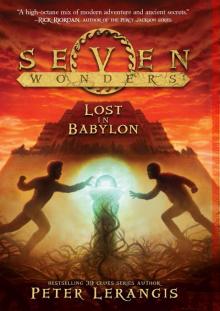 Lost in Babylon
Lost in Babylon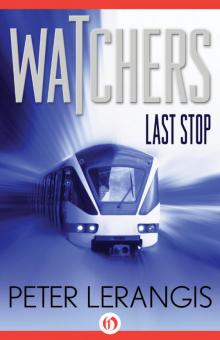 Last Stop
Last Stop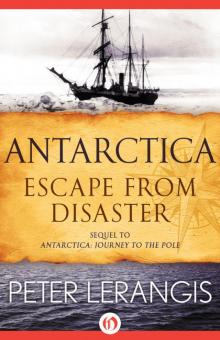 Antarctica Escape from Disaster
Antarctica Escape from Disaster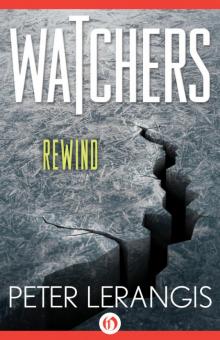 Rewind
Rewind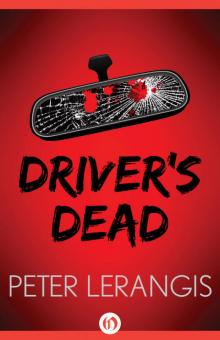 Driver's Dead
Driver's Dead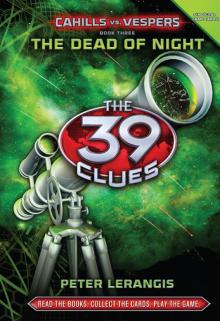 The Dead of Night
The Dead of Night The Promise
The Promise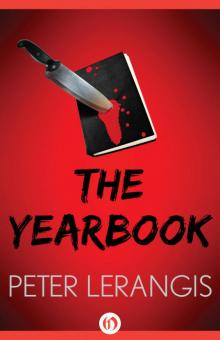 The Yearbook
The Yearbook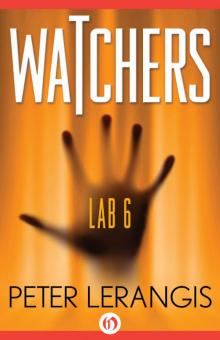 Lab 6
Lab 6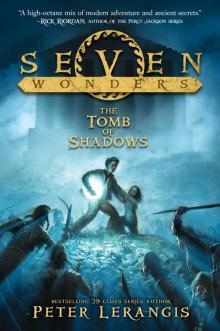 The Tomb of Shadows
The Tomb of Shadows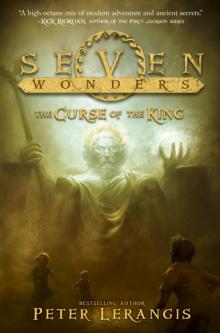 The Curse of the King
The Curse of the King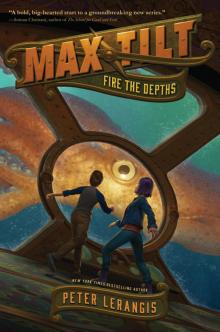 Max Tilt: Fire the Depths
Max Tilt: Fire the Depths The Fall Musical
The Fall Musical The Chaos Loop
The Chaos Loop Island
Island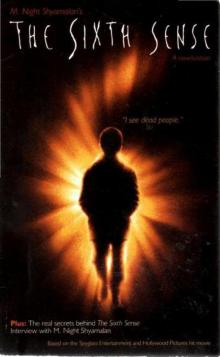 The Sixth Sense
The Sixth Sense Wtf
Wtf War
War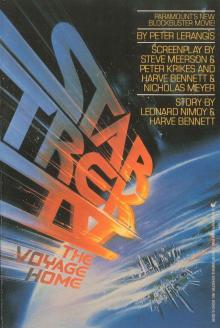 Star Trek IV, the Voyage Home
Star Trek IV, the Voyage Home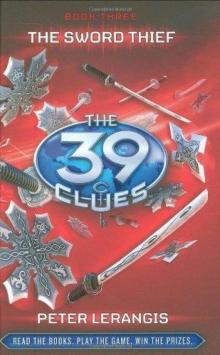 The Sword Thief
The Sword Thief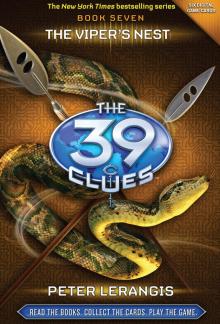 The Viper's Nest
The Viper's Nest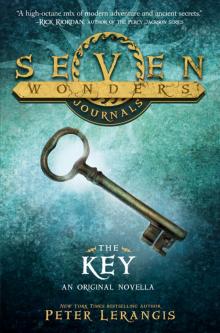 The Select
The Select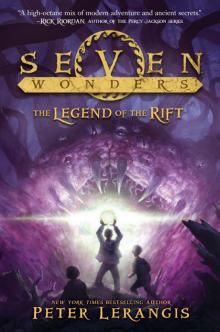 The Legend of the Rift
The Legend of the Rift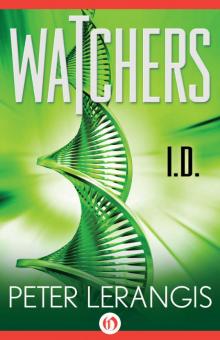 I.D.
I.D. The Sword Thief - 39 Clues 03
The Sword Thief - 39 Clues 03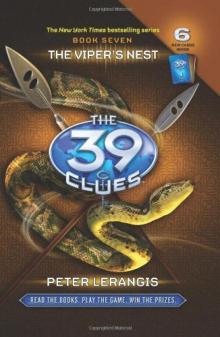 The 39 Clues Book 7: The Viper's Nest
The 39 Clues Book 7: The Viper's Nest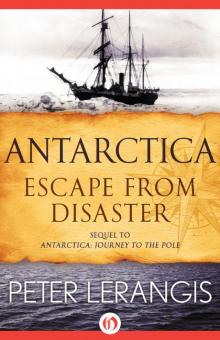 Antarctica
Antarctica Seven Wonders Journals: The Select
Seven Wonders Journals: The Select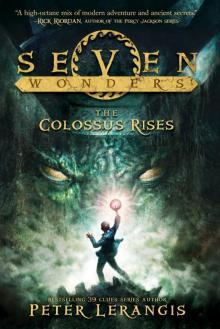 Seven Wonders Book 1: The Colossus Rises
Seven Wonders Book 1: The Colossus Rises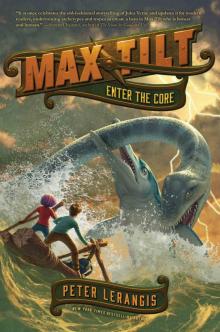 Enter the Core
Enter the Core![39 Clues _ Cahills vs. Vespers [03] The Dead of Night Read online](http://i1.bookreadfree.com/i1/04/02/39_clues_cahills_vs_vespers_03_the_dead_of_night_preview.jpg) 39 Clues _ Cahills vs. Vespers [03] The Dead of Night
39 Clues _ Cahills vs. Vespers [03] The Dead of Night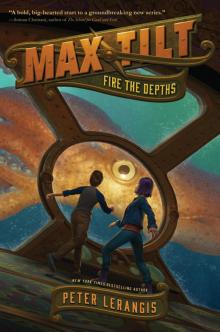 Fire the Depths
Fire the Depths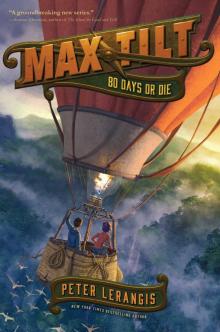 80 Days or Die
80 Days or Die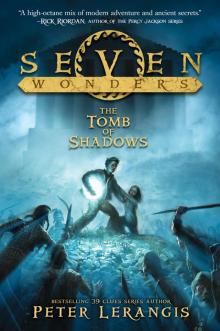 Seven Wonders Book 3
Seven Wonders Book 3